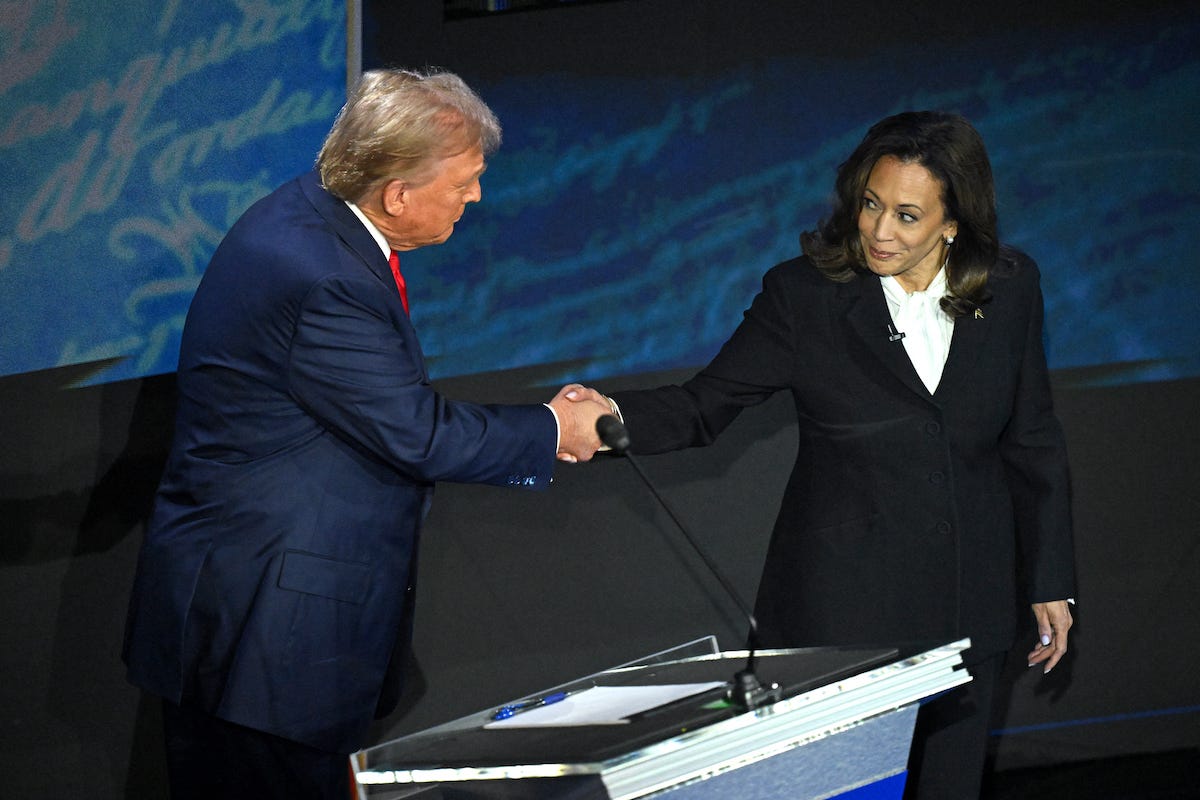How Democrats Can Compete With The Trump Incitement Machine
JD Vance admitted he and Trump will lie to control the campaign discourse; Democrats can't limit their response to conventional politics.
It’s been washed away by last week’s presidential debate, and Donald Trump’s ensuing meltdown. But for several days beforehand, something mysterious and troubling was afoot: From about the very end of August through about the first week of September, Kamala Harris’s polling began to sag.
People of differing perspectives, ideologies, and temperaments, interpreted the numbers differently: They were at turns a cause for panic or celebration; essentially arbitrary or a measure of something meaningful; a significant erosion of Harris’s lead or a slight correction to the eight points she’d gained through her first month on the trail. Half full, half empty.
The mystery, though, was why. Harris’s speech at the Democratic convention was a hit. Her first major news interview after becoming a candidate went well enough that Republicans attacked her interviewer. Factional critics could argue the bloom had withered because Harris proved insufficiently moderate or insufficiently progressive, but the truth is that nothing of significance happened between the end of the convention and the eve of the debate that could explain the reversion.
Unless, of course, the absence of significant news was itself the culprit.
This, to me and others, is the most plausible explanation. Harris benefited first from a wave of liberal relief that Joe Biden ended his candidacy, then from a wave of positive headlines as journalist chronicled the smooth rollout of her campaign. For a brief moment, things that normally disappear into the background of election coverage (stump speeches, fundraising numbers, endorsements) became front-page worthy.
But after four or five weeks, they receded. Harris’s rallies, still well attended and energetic, provided little news value. Republicans filled the vacuum with smears and stunts, and mainstream outlets fell back on the free-floating doomerism that has marked their coverage in the Biden era.
If this hypothesis is right, then the implication is straightforward: With the debate behind her, Harris should not revert to making whistlestops the main media draw of her campaign. She should instead continue finding ways to generate headlines that either help her or hurt Donald Trump. Otherwise, the dividends of the debate will dwindle and the race will become too close for comfort again.
The big question is: How should she do that? Or, rather, how can she do that, given the unscrupulous means the Trump campaign uses to attract attention?


